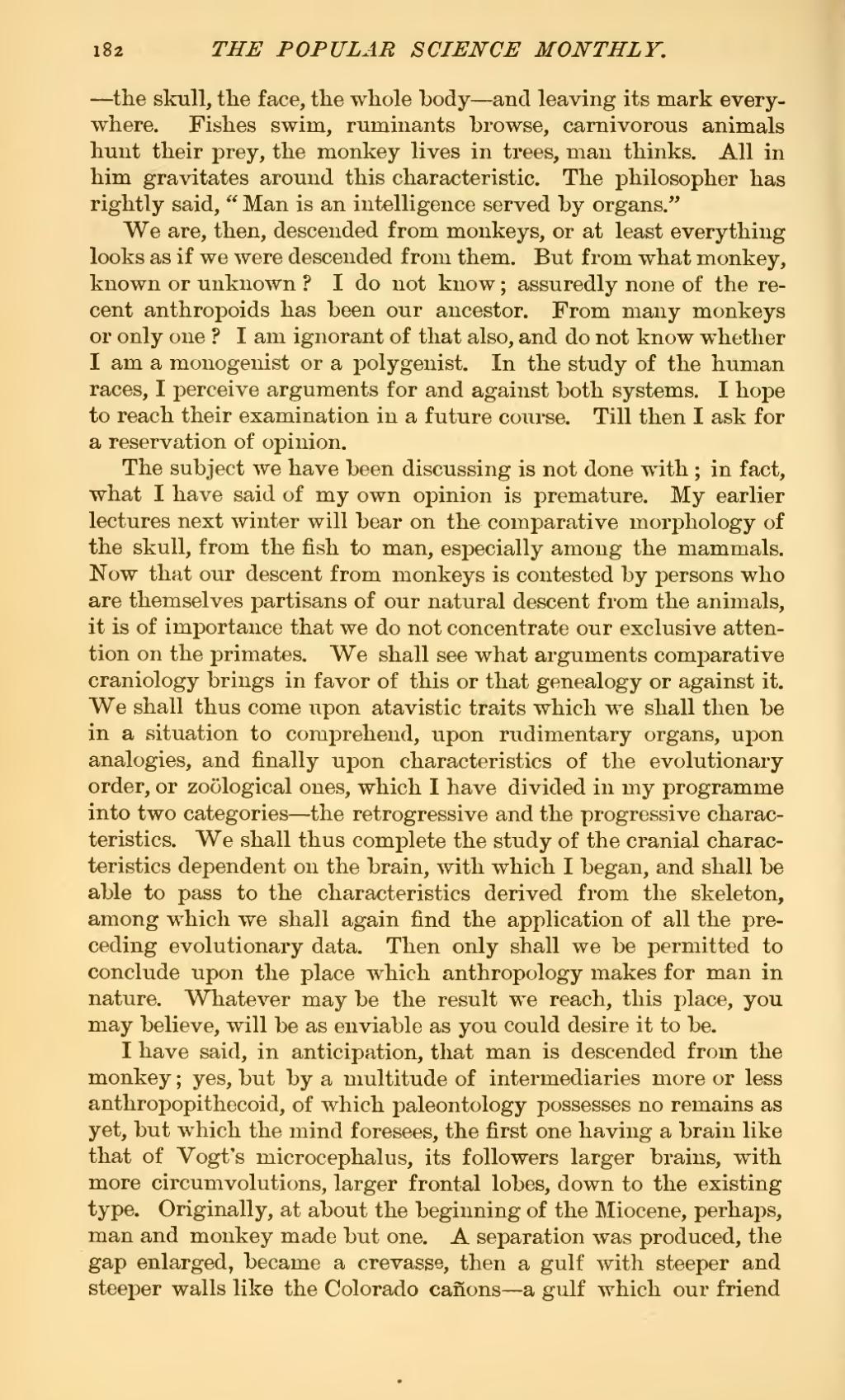—the skull, the face, the whole body—and leaving its mark everywhere. Fishes swim, ruminants browse, carnivorous animals hunt their prey, the monkey lives in trees, man thinks. All in him gravitates around this characteristic. The philosopher has rightly said, "Man is an intelligence served by organs."
We are, then, descended from monkeys, or at least everything looks as if we were descended from them. But from what monkey, known or unknown? I do not know; assuredly none of the recent anthropoids has been our ancestor. From many monkeys or only one? I am ignorant of that also, and do not know whether I am a monogenist or a polygenist. In the study of the human races, I perceive arguments for and against both systems. I hope to reach their examination in a future course. Till then I ask for a reservation of opinion.
The subject we have been discussing is not done with; in fact, what I have said of my own opinion is premature. My earlier lectures next winter will bear on the comparative morphology of the skull, from the fish to man, especially among the mammals. Now that our descent from monkeys is contested by persons who are themselves partisans of our natural descent from the animals, it is of importance that we do not concentrate our exclusive attention on the primates. We shall see what arguments comparative craniology brings in favor of this or that genealogy or against it. We shall thus come upon atavistic traits which we shall then be in a situation to comprehend, upon rudimentary organs, upon analogies, and finally upon characteristics of the evolutionary order, or zoölogical ones, which I have divided in my programme into two categories—the retrogressive and the progressive characteristics. We shall thus complete the study of the cranial characteristics dependent on the brain, with which I began, and shall be able to pass to the characteristics derived from the skeleton, among which we shall again find the application of all the preceding evolutionary data. Then only shall we be permitted to conclude upon the place which anthropology makes for man in nature. Whatever may be the result we reach, this place, you may believe, will be as enviable as you could desire it to be.
I have said, in anticipation, that man is descended from the monkey; yes, but by a multitude of intermediaries more or less anthropopithecoid, of which paleontology possesses no remains as yet, but which the mind foresees, the first one having a brain like that of Vogt's microcephalus, its followers larger brains, with more circumvolutions, larger frontal lobes, down to the existing type. Originally, at about the beginning of the Miocene, perhaps, man and monkey made but one. A separation was produced, the gap enlarged, became a crevasse, then a gulf with steeper and steeper walls like the Colorado cañons—a gulf which our friend
